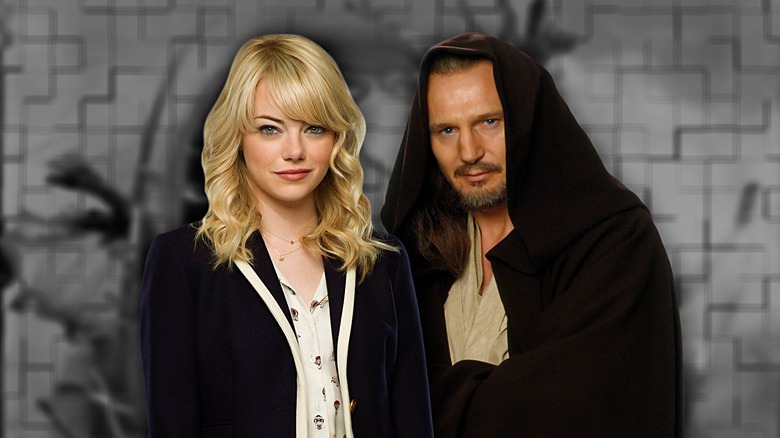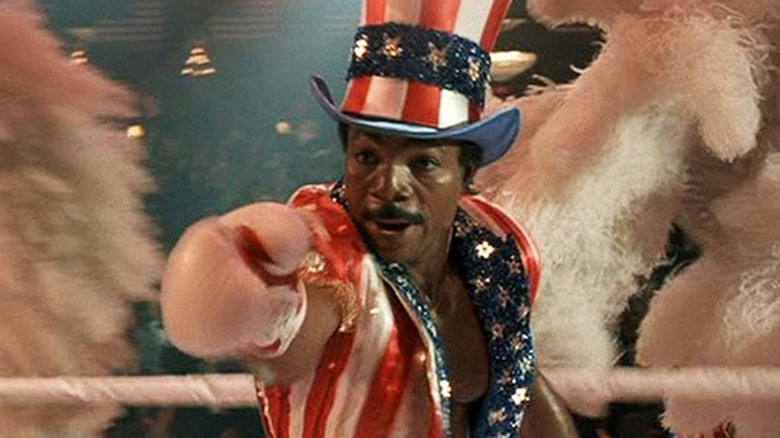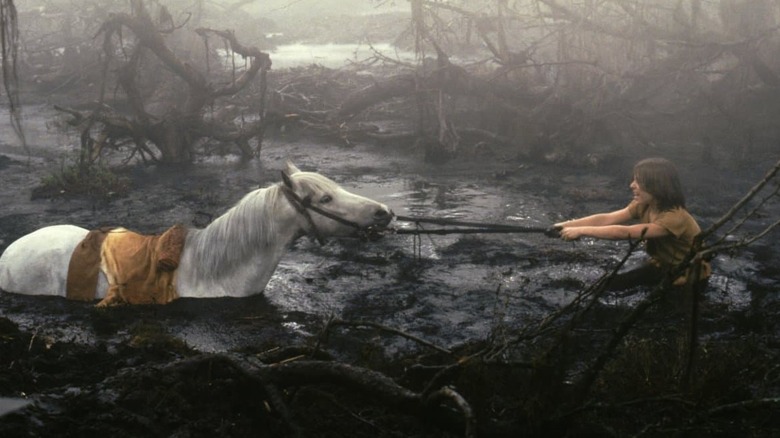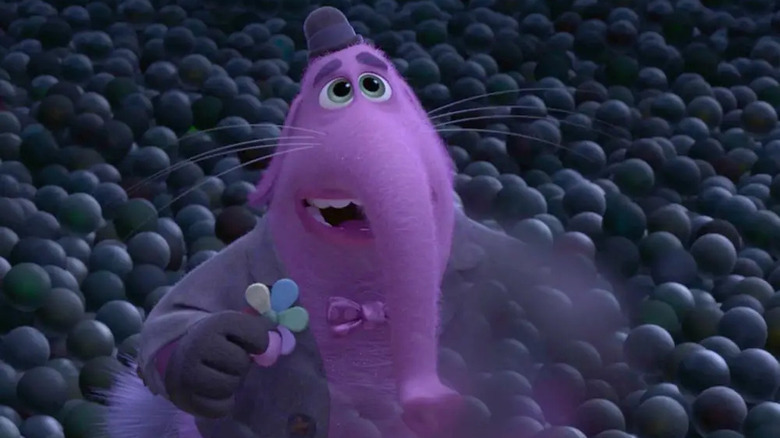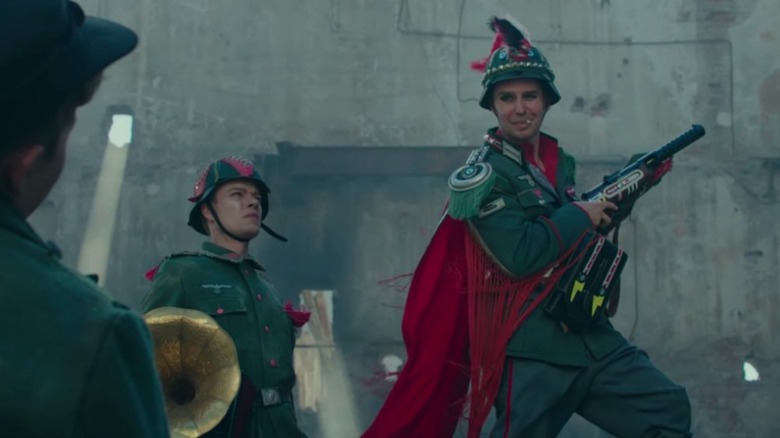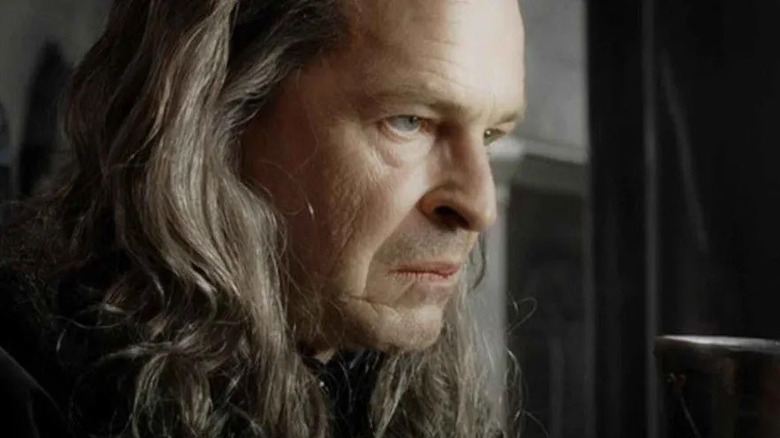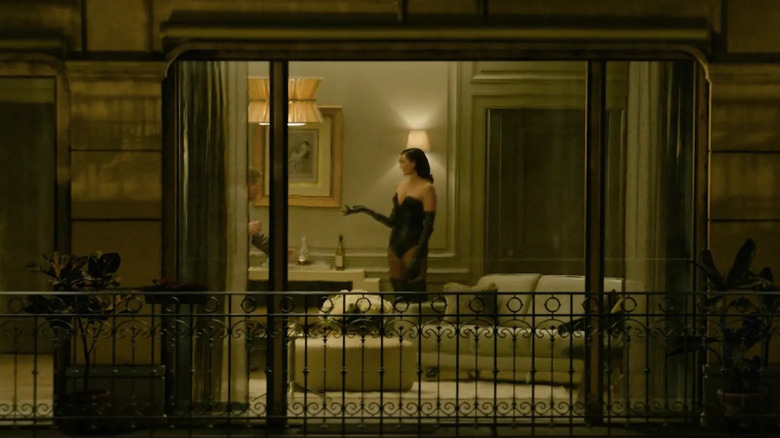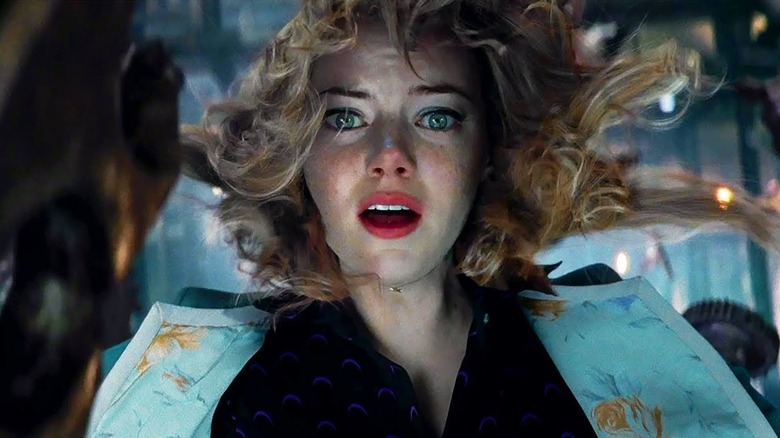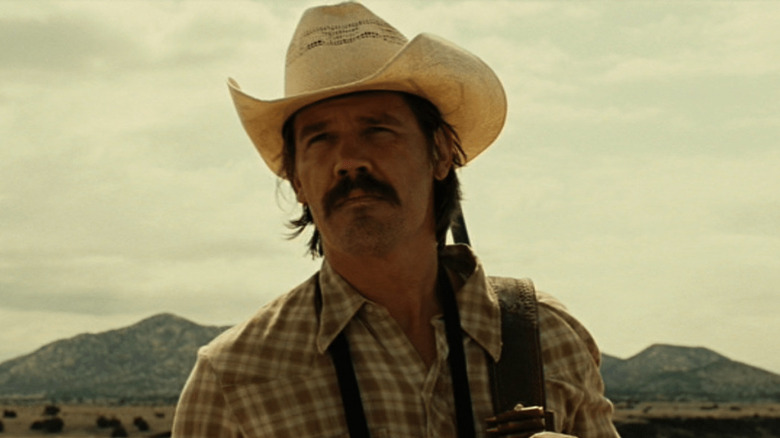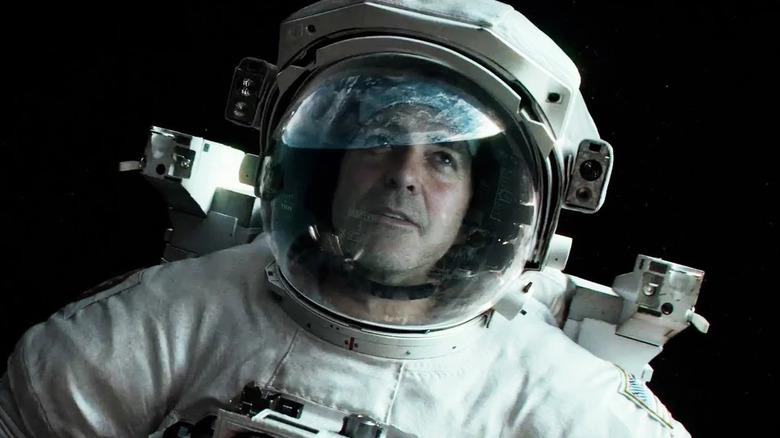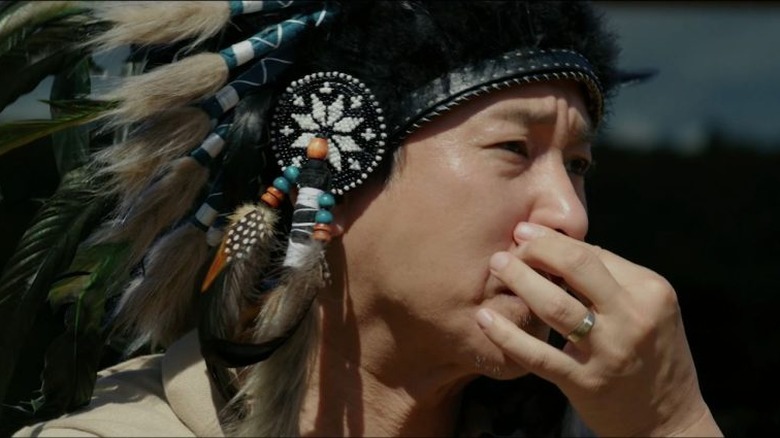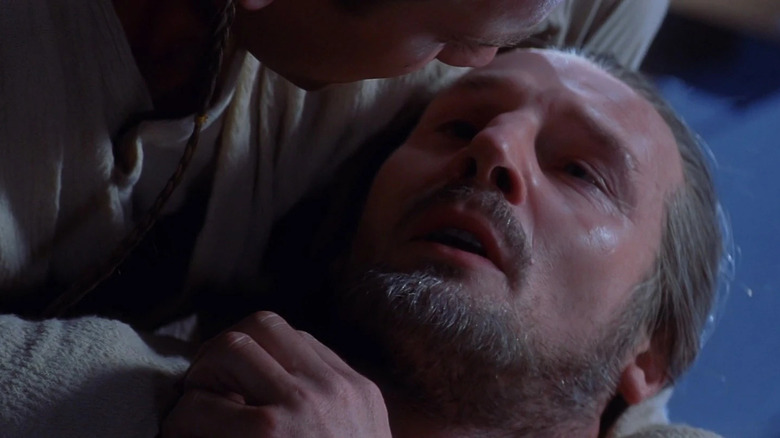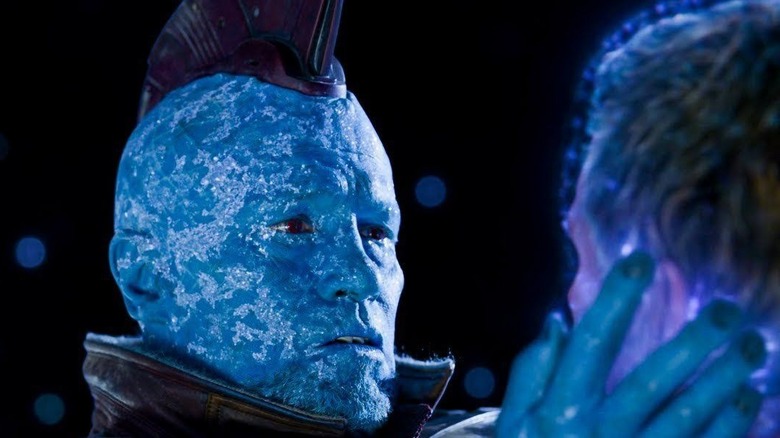Movie Deaths That Were More Important Than You Think
It's an old writer's adage that comedies end in marriage and tragedies end in death. However, as modern storytelling has become more nuanced, that conventional wisdom has become less true. Characters from just about any genre can shuffle off this mortal coil at any given time. The resulting effect on the audience can be surprise, emotional catharsis, and even dark humor.
Movie deaths can serve as deeply felt climactic moments (Tony Stark in "Avengers: Endgame"), satisfying payoffs (Count Rugen in "The Princess Bride"), or tantalizing twists (Dr. Malcolm Crowe in "The Sixth Sense"). Or they can be insignificant background moments in practically any horror romp, action flick, war film, or superhero property. But sometimes, when characters kick the bucket, the point is to do more than coax tears, cheers, or fears from the viewer. Movie deaths can move the plot forward in unexpected ways, they can be imbued with powerful symbolism, and they can have unforeseen but lasting impacts on franchises that shape future installments. These are some notable examples.
Apollo Creed in Rocky IV
Sylvester Stallone's "Rocky" movies were among the earliest of Hollywood's blockbuster franchises. However, 1985's "Rocky IV" wasn't particularly well-reviewed and critics thought the series was losing steam. But the films were still popular with audiences and "Rocky IV" was the fourth highest-grossing film of the year. This installment's legacy, however, has less to do with Rocky Balboa (Stallone) and more to do with his friend and fellow boxer, Apollo Creed (Carl Weathers).
When Creed faces off against Ivan Drago (Dolph Lundgren), he makes Rocky promise that he won't throw in the towel no matter how formidable and unrelenting Drago is. As Creed takes what looks to be a fatal beating, a conflicted Rocky holds true to his word. However, Creed dies at the hands of Drago, whose complete lack of remorse compels the Italian Stallion to avenge his friend in a bout of his own.
Creed's loss has personal and patriotic ramifications — with the clash of titans pitting America against Russia — and it's one of the most memorable movie deaths. Mid-movie major character deaths are rare and can throw audiences for a loop, but what sets Creed's death apart is how it inspired an entirely new trilogy of films 30 years later. 2015's "Creed" introduces us to Apollo's son, Adonis (Michael B. Jordan), and his father's passing and the idea of creating his own legacy play a significant part in his motivation to fight.
Artax in The NeverEnding Story
Even when they're aimed at children, mystical tales and epic adventures are usually imbued with deeper meaning, not only about good and evil but about the real world and the human condition.
In 1984's "The NeverEnding Story," a young boy named Atreyu (Noah Hathaway) has to stop a nefarious force referred to as the Nothing from killing the Empress (Tami Stronach) and conquering the kingdom. Aiding him on his quest is his trusty steed, Artax. The journey takes Atreyu and Artax to the Swamp of Sadness, where Atreyu hopes to elicit the help of a sage. The narrator lets the audience know that whoever lets the sadness overtake them will sink into the swamp. As they trudge through the thick sludge, it slowly dawns on Atreyu that Artax is getting harder to lead. When he looks back, his horse has come to a stop and is halfway submerged in the muck. Atreyu pleads with Artax to fight against the sadness and save himself, but his companion drowns and the hero is forced to go it alone.
Though it's more obvious to adults, this scene — which emotionally scarred a generation of children — is really about loss and grief. Artax's death is representative of depression and Atreyu's reaction is representative of the fact that kids must inevitably come to terms with life's harsh realities, like death, in order to grow.
Bing Bong in Inside Out
Pixar ostensibly makes computer-animated movies for kids, but anyone who's ever watched "Toy Story 3" or "Up" will tell you that they're practically engineered to hit adults square in the feels. Though the studio's filmography includes several heartbreaking deaths, one of the saddest and most significant is that of Bing Bong (Richard Kind) from "Inside Out." Bing Bong is the imaginary friend of protagonist Riley (Kaitlyn Dias) and he's a hybrid of an elephant, a cat, and a dolphin, with the texture of cotton candy. More importantly, he enables and encourages Riley's creative free spirit. During the events of "Inside Out," we discover that he's been banished to the recesses of Riley's consciousness as she has gotten older.
When Joy (Amy Poehler) happens upon Bing Bong, he's wandering around aimlessly with his wagon of memories. After he and Joy fall into the memory dump, they attempt to ride his wagon to escape. However, Bing Bong realizes before Joy does that there's only room for one of them in Riley's future, and he sacrifices himself and fades away into non-existence. This allows Joy — along with Sadness (Phyllis Smith) — to help Riley persist through adolescence, but metaphorically, it also means that Riley has outgrown her youthful abandon. Childlike magic isn't just beneath her now, it's gone. No longer being able to access that part of ourselves is something only more mature Pixar fans can understand.
Captain Klenzendorf and Freddy Finkel in Jojo Rabbit
Taika Waititi's 2019 comedy about WWII Germany is funnier and sadder than uninitiated audiences might expect. The most upsetting death comes about two-thirds into the film, though it's been cleverly foreshadowed throughout. However, it's a supporting character's demise near the very end that has more to do with Waititi's overall thesis.
When "Jojo Rabbit" starts, Captain Klezendorf (Sam Rockwell) is the unhinged supervisor at a youth camp who's incredibly bad at his job. As the film progresses, it becomes clear that he and his right-hand man, Freddy Finkel (Alfie Allen), are romantic as well as professional partners. Like many Germans, they became complicit in the horrors Adolf Hitler committed because they didn't see another way forward.
When the writing is on the wall that Germany is going to lose, Captain K and Freddy design queer-coded uniforms for themselves and put on makeup. They charge into battle without any convictions other than going out as their authentic selves. This is especially poignant since Hitler scapegoated homosexuality, too, meaning that Captain K and Freddy would've been just as vulnerable as the Jewish Elsa (Thomasin McKenzie). We don't see either die on screen, but after Captain K saves Jojo's life, we hear a definitive gunshot. And since Captain K and Freddy did everything together, we can make an educated guess about his fate.
Denethor in The Return of the King
Sometimes a character's death isn't a matter of choice for the screenwriter or director. Particularly as it pertains to adaptations of classic works of literature, filmmakers' hands are often tied when it comes to who lives and dies. Still, the circumstances of key death scenes don't have to match the source material. In 2003's "The Lord of the Rings: The Return of the King," the Steward of Gondor, Denethor (John Noble) meets his demise in a similar but more cinematic way. The change also alters the character and his thematic resonance within the rest of the story.
In Tolkien's books, Denethor is a tragic figure who succumbs to something resembling nihilism when Sauron tricks him into believing Gondor is lost. In the films, he's lost his son, Boromir (Sean Bean), and he believes he's lost his other son, Faramir (David Wenham). But rather than allow himself to burn on the pyre (as he obviously intends to after he douses himself in oil), he's knocked into the flames by Shadowfax while Gandalf (Ian McKellen) and Pippin (Billy Boyd) save an unconscious Faramir. Panicked and ablaze, Denethor runs and then plummets to his death. This clears the way for the battle against Mordor to be won and for the rightful king to return to the throne. But the character — who comes off as more stubborn and indulgent in the film — is effectively killed accidentally and not due to Sauron's influence.
The dominatrix in The Killer
David Fincher is back to what he does best with 2023's "The Killer." This crime thriller is warped and witty in much the same way that the director's most iconic work is. Many of the characters don't have names — Michael Fassbender's titular assassin included — and much of the dialogue comes in the form of his unreliable inner monologue. What else "The Killer" has in common with Fincher's biggest hits is a number of memorable death scenes. But before the killer can take out the laundry list of anonymous people who are trying to kill him, he has to make the mistake that sets things in motion.
In a prolonged opening segment, Fassbender monologues to the audience about how good he is at his job and what it takes to be a hitman with a flawless record. He opines as he waits, and finally sets his gun's sights on a window in a French apartment where he intends to fire a long-range shot to take out his target while drawing minimal attention. That target has brought home a dominatrix with him, and when the killer doesn't practice as much patience as he preaches, she wanders back into the frame and pays the price with her life.
The botched job makes him the target, and everything that follows happens because of this missed mark. The dead dominatrix is also dramatically ironic proof that the killer's moral relativism and compartmentalization are imperfect coping mechanisms.
Gwen Stacy in The Amazing Spider-Man 2
2014's "The Amazing Spider-Man 2" ranks low on the list of "Spider-Man" movies. Critics and audiences complained that the plot was all over the place and that there were too many villains. Nevertheless, "The Amazing Spider-Man 2" boasts one of the more impactful deaths in recent memory. While Spidey (Andrew Garfield) is taking on Harry Osborne aka Green Goblin (Dane DeHaan), Gwen Stacy hangs from a clock tower, with every turn of the cogs bringing her closer to plummeting to her doom. Peter Parker leaps into action to save her. We can see her silhouette in his mask's eye. His webs do eventually make contact, but the sudden stop causes her to break her neck and die.
Gwen's on-screen death has had lasting repercussions that have rippled into other "Spider-Man" movies. In 2021's "Spider-Man: No Way Home" — which featured appearances from Garfield and Toby Maguire in addition to Tom Holland — Peter's inability to save Gwen has consumed a more mature Spider-Man, and he redeems himself by rescuing MJ (Zendaya) from an eerily similar situation. Had his own film series continued, the infamous Sony leaks revealed that Stacy would've returned from the dead, reincarnated as Carnage.
Llewelyn Moss in No Country for Old Men
Sometimes, Westerns are as uncomplicated as the good guys versus the bad guys. Sometimes — especially when they're adapted from books by Cormac McCarthy and directed by the Coen brothers — they're decidedly thornier. 2007's "No Country for Old Men" is full of the Coens' trademark dispassionate violence, but it's also contemplative. Nothing symbolizes that better than the death of the protagonist and point-of-view character, Llewelyn Moss (Josh Brolin).
When Moss happens upon a drug deal gone wrong, he has the opportunity to make off with a briefcase of cash, but he spends the rest of the movie fleeing an assassin, Anton Chigurh (Javier Bardem), and trying to arrange his wife's safety. Because "No Country for Old Men" is dark, we don't expect Moss to make it. What's unusual is that he's killed off-screen. His murder is treated with nonchalance, and much more screen time is devoted to resolutions for the near-retirement detective (Tommy Lee Jones), who lives, and to Carla Jean (Kelly Macdonald), who also dies off-screen after a tense conversation with Chigurh.
The point of "No Country for Old Men" is that in a meaningless world, death — as embodied by Chigurh — can come for anyone, whether they're evil, complicit, caught up by association, or completely innocent. Llewelyn sealed his fate with one misdeed, but to a larger extent, the Grim Reaper's interference in our lives is, distressingly, random.
Matt Kowalski in Gravity
One way to pull off an unexpected character death is to cast a world-famous A-list actor in the role. Alfonso Cuarón's film, "Gravity," landed this maneuver perfectly. The movie already had a sparse main cast. Veteran astronaut Matt Kowalski (George Clooney) is mentoring Dr. Ryan Stone (Sandra Bullock) on her maiden voyage. Other than the voice cast, which includes Ed Harris, that's it. After a debris storm disrupts their mission and takes out the rest of the crew, it's a genuine shock that Kowalski dies, too. He untethers himself and willingly floats away so that Stone may live.
Kowalski's sacrifice isn't just a tear-jerking twist. Narratively, his absence is required for Stone to embark on the emotional journey that will heal her after her daughter's death. Like many entries on this list, "Gravity" isn't simply about what it appears to be about ... in this case, surviving in hostile outer space. Stone's overwhelming and seemingly impossible task — to make it back to Earth — is an allegory about overcoming seemingly impossible life obstacles, like the loss of a child. If the experienced Kowalski was still around, she would've just been along for the ride.
Mr. Park in Parasite
2019's "Parasite" is a cleverly plotted thriller that puts the meta in metaphorical, including when it comes to character deaths. Writer-director Bong Joon-ho's rumination on class conflict pits the working-class Kim family against the extremely affluent Park family. When Ki-woo (Choi Woo-shik) lies about his qualifications to become Da Hye's (Jung Ji-so) English tutor, he realizes how easy it is to scam the disaffected wealthy. The rest of the Kims get in on the act. But when Chung-sook (Jang Hye-jin) displaces the current housekeeper, Moon-gwang (Lee Jung-eun), the Kims discover she'd been hiding her husband, Geun-sae (Park Myung-hoon), in a secret subterranean basement.
Moon-gwang endeavors to expose the Kims' treachery as they stoop to new lows to stop her. For a while, the violence is poor-on-poor. Moon-gwang is killed. Ki-woo appears to be dead. Geun-sae stabs Ki-jung (Park So-dam), and Chung-sook retaliates by impaling Geun-sae. Only when Mr. Park (Lee Sun-kyun) orders Mr. Kim to drive his son rather than grieve his daughter does the servant turn against the employer. Ki-taek (Song Kang-ho) turns a knife on Mr. Park, who dies from his wound. Knowing he'll be found guilty of murder, Ki-taek has no choice but to hide in the basement that Geun-sae once occupied. Though the ending is ambiguous, its hopeful final note rings hollow. The inability of the working class to climb the economic ladder means Ki-woo will likely never earn enough money to free his father. Dong-ik's death symbolizes how wealth disparity can destabilize civilization so that everybody loses.
Qui-Gon Jinn in The Phantom Menace
"Star Wars" is jam-packed with important deaths, and at this point, more main characters have been killed off than not. Obi-Wan Kenobi, Yoda, Darth Vader, Emperor Palpatine, Han Solo, General Leia Organa, Luke Skywalker, and Kylo Ren are no more. But one fateful duel set all of those events into motion.
Arguably the most consequential death in all of "Star Wars" is that of Qui-Gon Jinn (Liam Neeson). In "Star Wars: Episode I – The Phantom Menace," Qui-Gon is a Jedi Knight tasked with training his apprentice, Obi-Wan Kenobi (Ewan McGregor), and getting to the bottom of the political intrigue surrounding the recent trade disputes. When their ship gets waylaid, Qui-Gon makes the acquaintance of a young Anakin Skywalker (Jake Lloyd). He's impressed with his mechanical skills and pod racing abilities, and he believes Anakin to be the one who can restore balance to the Force and he intends to take him on as a Padawan.
Unfortunately, Qui-Gon gets himself run through with Darth Maul's (Ray Park) double-bladed red lightsaber. As he dies, he makes Obi-Wan promise to teach Anakin the ways of the Force. This will be the first master-apprentice relationship in a long line of Jedi who won't always listen to the council and won't always finish their training. It's the inciting incident in the "Star Wars" storyline that leads to Vader, Luke, Rey, and beyond.
Yondu in Guardians of the Galaxy Vol. 2
In 2014's "Guardians of the Galaxy," Yondu (Michael Rooker) is, more or less, an incidental anti-hero. By absconding with a juvenile Peter Quill, Yondu becomes a de facto father figure to the character who would grow up to be Star-Lord (Chris Pratt). He's prickly and pretends not to care much about whether Quill makes it out in space, but he and the Ravagers do eventually join forces with the Guardians to fight against Ronan (Lee Pace) and his forces. But, as we learn in 2017's "Guardians of the Galaxy Vol. 2," Yondu has been playing a much bigger part in the trajectory of Quill's life than he ever let on.
In the second of the three "Guardians" films, audiences discover that Quill's dad, Ego (Kurt Russell), is a Celestial. That makes Star-Lord half-god. The retconning also includes this juicy tidbit: Ego hired Yondu to collect his Earth child as soon as his mother, Meredith, died. But knowing what Ego did to his children, Yondu chose not to go through with the delivery, which caused a rift between him and the other Ravagers. By the final face-off against the Living Planet, Yondu has become a much more sympathetic character. That makes it all the more meaningful when he sacrifices himself to give his charge the chance to get back to his ship. His noble death has been referenced since, and it continues to impact Quill.
